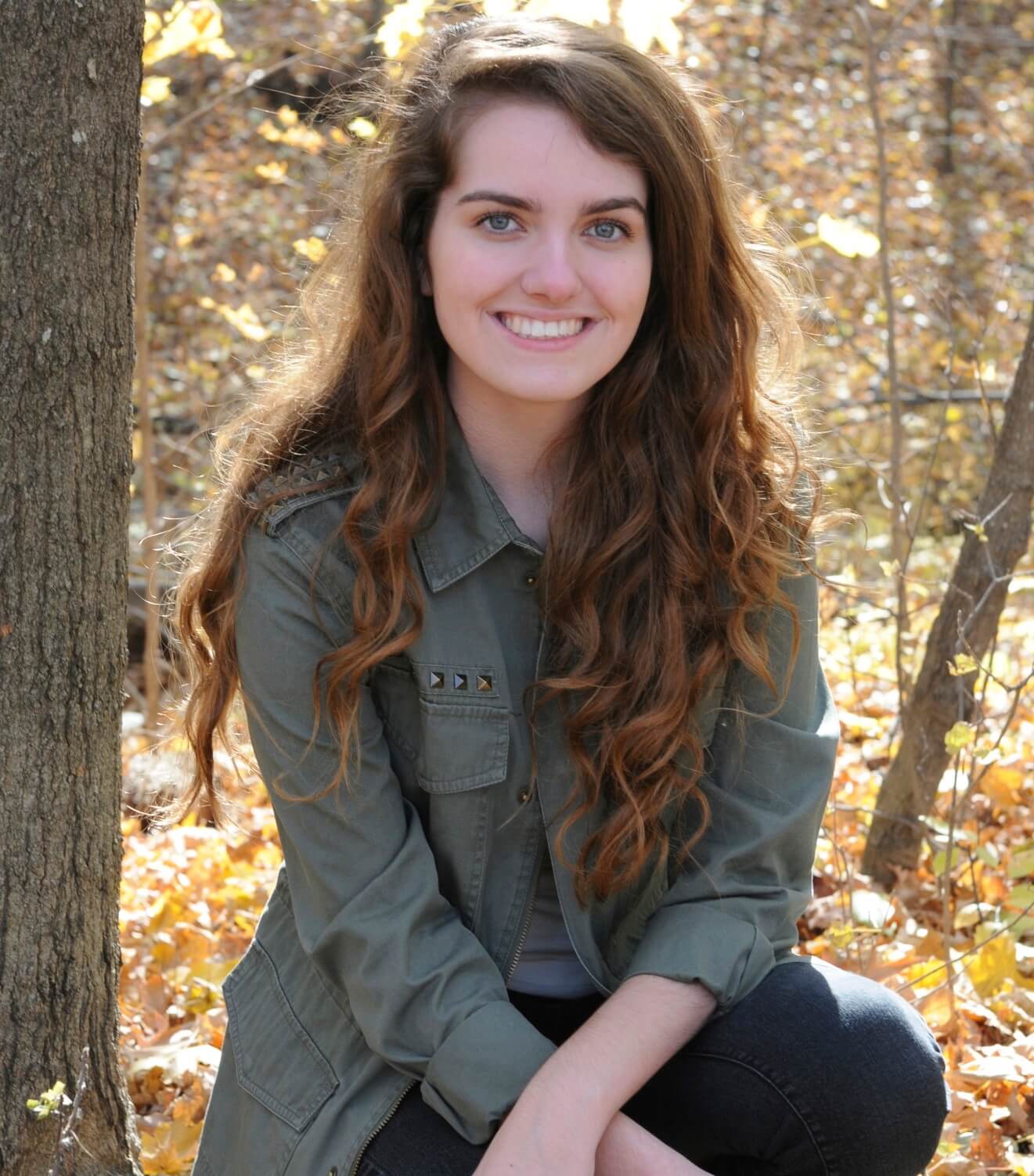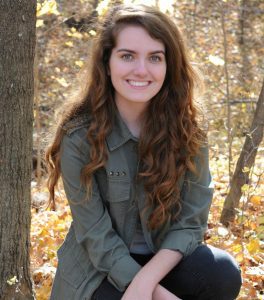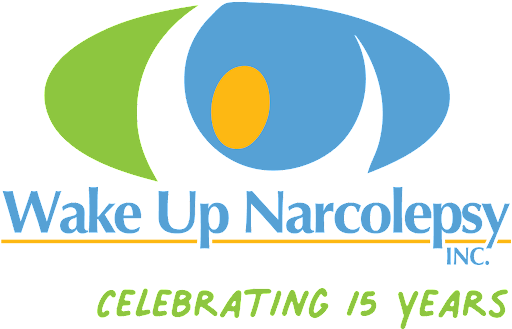
Jun 16 2019
Time to Sink or Swim
h in Voices of Narcolepsy
High School AP English Essay by Kendra Larrabee, 17

Strangely, when I was diagnosed with narcolepsy, a feeling of relief came over me, I was finally going to break out of the fog and get my life back. Obviously, I was unaware of the sadistic nature that the demon that now lived in my brain possessed. According to my Mom, in January 2011, “a light switch turned off inside of me.” My jovial, wildly animated, exuberant personality shattered as feelings of profound nothingness overtook me. No happiness, no sadness, all I felt emotionally was numbness and exhaustion. School was always one of the pinnacles of my life. The idea of accumulating vast amounts of knowledge gave me a sense of elation. My Mom knew something was wrong with me when school became unbearable. Sitting listlessly in class condemned me to a hell where it took striving with every morsel in my existence to stay awake. Each night, 7:30 came and I fell into a coma, leaving my homework incomplete. My drive to simply function normally diminished, all I craved was sleep. I literally couldn’t do anything but sleep. As much as I tried to hide the sleepiness from nonfamily members, it just wasn’t possible.
“You look like a zombie Kendra.”
“You look like you are a walking corpse.”
“Kendra, you look like you are dead.”
The art of avoiding people was something that I mastered whether it was at school, at the pool, or at home. Talking used up too much energy. Nobody fathomed the brain-numbing fatigue that I was feeling. My mind was in a constant state of fog, thinking was inconceivable. My brain was a slow dial-up while everyone else’s was high-speed Internet. My Mom was worried about me, of course she was. She watched as her daughter dissipated in front of her eyes and lost the will to carry on, to do anything but sleep. Naturally, my Mother whisked me away for countless medical tests. She was determined to find the reason as to why my life halted. My pediatrician recommended a sleep study, just to check out my sleep patterns. In March 2011, I stayed overnight at a sleep clinic for a sleep study, as well as the following day for a nap test. That nap test, the multiple sleep latency test, confirmed the reason as to why my life came to a standstill. I had narcolepsy.
“What in the world is narcolepsy?”
Neither my parents nor I knew what narcolepsy was. The extensive explanation my doctor supplied about the crippling disease was staggering. The major symptom of narcolepsy is excessive daytime sleepiness. This is not the normal kind of tiredness. It has been described as a normal person attempting to stay awake for three straight days without sleep. Cataplexy, another debilitating symptom, is where one loses muscle tone when experiencing a strong emotion, such as laughter. When a person has cataplexy, it is likely they will fall over when they laugh. Many narcoleptics are unable to move their limbs when waking up or falling asleep, which is sleep paralysis. Finally, hypnogogic hallucinations consist of dreams that occur when the narcoleptic is waking up or falling asleep and is still conscious. My personal battle is waged with the excessive daytime sleepiness. It is a harrowing struggle to keep my eyes open throughout the day. Mild cataplexy also plagues me, but luckily when I laugh, I do not fall over. When I laugh, I tend to drop things while my legs simultaneously turn to jelly. I’ve only had sleep paralysis twice, but I do have hallucinations frequently, which are quite terrifying. These hallucinations occur nearly every night and are so vivid that I often do not know if they really happened or not. Narcolepsy affects every fiber of my being; sometimes it controls my life.
“Mom, I hate swimming, I’m so slow and horrible! I could’ve been on varsity if it wasn’t for this stupid narcolepsy.” My naivety quickly turned into reality. The combination of worsening symptoms, along with building up medication tolerance, shattered any hope I harbored of carrying on my life exactly as it was before my diagnosis. After an uneventful summer because of my health, I started 10th grade and my third season of high school swimming. The previous year, in ninth grade, I was already swimming some varsity events and I was on track to swim all varsity for the rest of my high school career. The best laid plans never work out in the end. The swim team, the thing that had been my life: my social life, my exercise life, my whole life, no longer gave me any sort of rhapsody. Streamlining and pounding my way through the water quickly took its toll on my exhausted, nutrition-strapped, feeble body. My refuge had failed me. I didn’t swim any varsity in 10th grade. The first trimester of 10th grade was the lowest part of my entire odyssey as a narcoleptic so far. Conversations with my peers at school were nonexistent. I felt useless on my swim team, and the positive attitude that I had cultivated over the summer crumbled. At this point in my life, I was tired of being tired.
“Who would ever want to date someone who would rather sleep than do anything else? It’s tedious work just to be around me, all of my friends are going to leave me. No one will hire the lazy narcoleptic. What’s the point?” Toward the end of November 2011, I felt hopeless. My life was never going to be the same as it was P.N., pre-narcolepsy. I knew that I brought all the people around me down. It was visible in the pitying yet suspicious glances they cast my way. It was apparent in the way their lips would twist into a grimace when they thought I wasn’t looking. The body language of those who surrounded me spoke volumes when they shuttered after my response of “I’m tired” to their question of “how are you.” I saw it in their backs after they awkwardly stumbled away, as if narcolepsy was some communicable disease and they could catch the demon simply from standing close to me. I was a burden to everyone: a life-sucking leech whose brain absorbed other people’s energy as if it could turn their energy into its own. No one can begin to grasp what it is like to constantly be on the brink of falling asleep. No one can comprehend attempting to choke back laughter out of fear of falling down. My friends tried to understand what I was going through, but they were tired too.
“Are you always going to use narcolepsy as an excuse for everything?” one asked when I explained why I left practice early.
They, like most people, thought I was doing something wrong. Staying up too late, not sleeping enough, being lazy. “If you would get more sleep, you would be fine.”
“Narcolepsy doesn’t sound so bad; at least it doesn’t kill you.”
The thing is, narcolepsy does kill. While it may not kill biologically, it slowly kills hope and optimism, and without those, are we really alive? Imagine waking up every morning and knowing that no matter what you do, you’ll never feel awake again. That you are a prisoner inside your own head, shackled to the mercy of a broken brain and have no control over your body. Being exhausted and broken-down to the point of physical and mental pain is heart-wrenching. If my friends were apprehensive and doubtful about my narcolepsy, how would someone ever want to marry me? How could I ever achieve my dream of becoming a doctor if I couldn’t read more than three sentences without falling asleep? How could I be me if narcolepsy was slowly crushing my soul?
“Give me some of that medicine,” has been the response nearly every time I explain my medication to someone. Obviously my incessant pill popping makes people uncomfortable, I bet they wonder what is wrong with me. For the whole year and a half I’ve had narcolepsy, I’ve been on varying types and dosages of stimulant medication: amphetamines. Every time we upped my dosage, the meds worked for around three weeks then lost effect, which was very depressing. To invest so much blatant craving and hope into a treatment only to have it fail is one of the most disheartening feelings one can experience. From December 2011 to March 2012, I was actually taking a higher than recommended dose of my medication. I was on 90 mg when the maximum dose was supposed to be 72 mg. That 90 mg was the only treatment that made me feel like my normal self again. Unfortunately after a 3 ½ month long run, it ceased to work, just like all of the other medicines that I tried. Although the medicine keeps me awake, it carries unfortunate side effects. I am called anorexic because the most noticeable effect is that the medicine suppresses my appetite. I lost approximately 25 pounds since my diagnosis, and it is because I’m not hungry so I do not eat. The medicine also causes tachycardia, chest pain, flight of mind, and ADHD-like symptoms, along with numerous others.
The long-lasting effects that the 90 mg had on me were much more profound than simply keeping me awake. During that time, I experienced the first flashes of hope and the first feelings of true happiness in almost a year. Remembering how to enjoy my day instead of dreading the moment when I had to drag myself out of bed was embraced with feelings of euphoria. Recalling what it was like to aspire to be something was extraordinary; ambition and determination colored my world. I remembered what it was like to be alive. As bad as it has gotten, as much as it intrudes in my life, I don’t hate and despise my narcolepsy. Sure, if some magical potion was conjured up that had the ability to cure it; there is no doubt that I’d be the first to guzzle it down. Don’t get me wrong, if it was possible, I’d get rid of it instantly. However, narcolepsy has proved to be one of the major building blocks of my character. Narcolepsy has sculpted me to be a better and stronger person. Being forced to reschedule my plans and duties because I am too tired to complete them has taught me flexibility. Having a neurotic break-down if something happens that is not a part of my rigid schedule is no longer an issue. In fact, no longer planning out every moment of my life is something that has resulted from this. My times when I am truly awake are so few and far between; I cannot spend my time following a schedule. As strange as it sounds, becoming a more jocund, jubilant, and joyous person is something that has derived from this radical change in my life. I no longer base my feelings off of other people’s opinions and attitudes. It doesn’t matter what other people think of me. If they think that I am weird and lazy, then so be it. Achieving this heightened sense of confidence and easygoingness has probably been one of the biggest accomplishments of my life. I’m an all-around more optimistic and vivacious person now than I was before narcolepsy. It took this crazy roller coaster of physical, mental, and emotional ups and downs to become as ebullient as I am today. My current attitude toward narcolepsy is positive. I no longer feel that soul crushing despair of never being able to feel awake again. I am just thankful that I am able to feel hope again and that I can look forward to my future instead of dreading it. I know that I will make something of my life. Narcolepsy will not get in the way of my enduring vision of attaining a successful life. I won’t let it.
“Mom, I can’t wait to go swimming again.”
